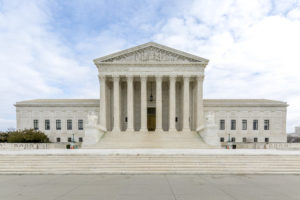The bottom line on fake reviews: They’re more trouble than they’re worth.
To help you stay on the right side of regulations, pay heed to these ten tips – from an Internet lawyer – about online review legalities.
#1: Are Fake Reviews Allowed?
Fake reviews violate a slew of advertising and marketing laws. In the words of the FTC: “[Endorsements] must reflect the honest opinions, findings, beliefs or experiences of the reviewer.” In essence, a fake review would not reflect the “honest opinion, findings, beliefs or experiences of the reviewer” since the premise of a fake review is that the reviewer never used the product or service.
If fake reviews are used in a commercial capacity, the FTC could charge you with violating Section 5 of the FTC Act. Also, competitors may come after you for unfair competitive activities and/or violations of the Lanham Act. Both Section 5 of the FTC Act and the Lanham Act have provisions for punishing people who engage in false and misleading advertising.
In the words of the FTC: “If an endorser is acting on behalf of an advertiser, what she or he is saying is usually going to be commercial speech – and commercial speech violates the FTC Act if it’s deceptive. The FTC conducts investigations and brings cases involving endorsements under Section 5 of the FTC Act, which generally prohibits deceptive advertising.”
#2: Try to Get an Injunction
Fake and phony reviews can ruin a company’s reputation. The longer they remain online, the more damage they can do. If you’re the target of a malicious fake review attack, hire an attorney who can determine the best course of action.
#3: You Are Your Affiliates’ Keeper
The Federal Trade Commission has made it clear: marketers and businesses are responsible for the actions of affiliates who promote their products. If affiliates flout marketing regulations, businesses can be held liable.
#4: Tell the Truth
Advertising claims must be truthful. Yes, you’re allowed to engage in a bit of “puffery”, but straight up lying deceives consumers; hence, it’s a violation of marketing and advertising rules. If you get caught passing lies via marketing materials, the FTC may fine your company.
#5: Don’t Mislead People
Not only can’t you lie in promotional material, but you can’t intentionally mislead people. The FTC’s prime directive is to protect consumers against fraud and deceptive marketing. Blatant misdirection falls under that umbrella.
#6: Disclose Generously
It’s not OK to bury a disclosure behind a single footer link, which takes you to a 20,000-word legalese wall of 8px text. Disclosures must be conspicuous. Plus, they should be written in a way that the average person can understand.
Our online review compliance attorneys can help you craft disclosure language. Businesses are no longer protected by purposefully confusing – but legal – user agreements and disclosures. In the FTC’s words: “…but each new endorsement made without a disclosure could be deceptive because readers might not see the original blog post where you said you got the product free from the manufacturer.” And “a disclosure on a profile page isn’t sufficient because many people in your audience probably won’t see it. Also, depending upon what it says, the badge may not adequately inform consumers of your connection to the trade association. If it’s simply a logo or hashtag for the event, it won’t tell consumers of your relationship to the association.”
#7: Drop in Search Engine Rankings could be a Legitimate Harm
To win a defamation lawsuit against a fake-review-posting competitor, plaintiffs must demonstrate harm. In some cases, a drop in search engine rank qualifies as sufficient harm for the purposes of a lawsuit, because it correlates to client loss. This area of the law is still untested.
#8: Leave Celebrities and Newscasters Alone
It’s not OK to deceptively use celebrities’ or news anchors’ pictures without permission. In most cases, it’s OK to use royalty free pics of famous people for editorial purposes, but you cannot use them to make it look like they endorse a product, business, or brand.
#9: Family and Employees Must Out Themselves
The Federal Trade Commission insists that all material connections are disclosed in promotional and marketing materials – and the agency considers familial and professional relationships to be material. In the words of the FTC: “Advertisers are subject to liability for false or unsubstantiated statements made through endorsements, or for failing to disclose material connections between themselves and their endorsers.”
#10: Beware the Giant Fines
If you do tempt fate and use fake reviews, prepare to pay a large, large fine if the FTC comes knocking. Be warned: the FTC does not mess around. They’ve even been known to re-possess houses, mink coats, watches, cars, and other assets from family members!



Leave a Reply
Your email is safe with us.